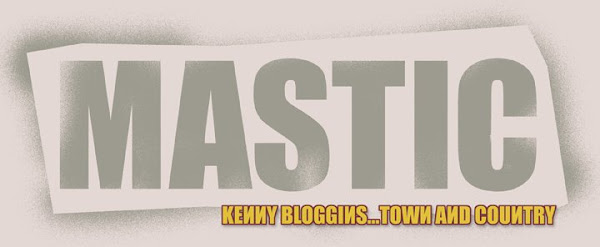Written by my old High School friend Kelly McMasters.
Op-ed: Shirley, the Mastics are East End's backbone
BY KELLY McMASTERS | Kelly McMasters is the author of the forthcoming book "Welcome to Shirley: A Memoir from an Atomic Town."
A couple weeks ago, I was traveling on the Long Island Rail Road from Speonk to Manhattan on a Sunday afternoon. A handful of men in hockey jerseys were sitting nearby, and as the train pulled to a stop at the Mastic-Shirley station, they rolled their eyes dramatically. One said loudly, "Here comes the trash."
A familiar knot pulled tight in the pit of my stomach. I grew up in Shirley. I moved there with my parents when I was 4 years old and stayed until I left for college in 1994. The idea that this man considered my hometown - and, by association, me, my family and my friends and neighbors - to be nothing more than trash was incredibly painful.
The tri-hamlet's prolonged image problem became news a few days later, when WBLI radio host Randy Spears attacked the area during the show "BLI in the Morning" after a caller said she lived in Mastic. That knot in my stomach twisted again as I imagined the caller's humiliation when Spears launched into his hateful jokes about the working-class nature of the town.
That Shirley, Mastic and Mastic Beach are seen as low-class, poor and generally scrappy is not a revelation, of course. They have been struggling for decades to improve their image, and the latest round of sex-offender dumping and rental problems is simply the most recent incarnation of an enduring dilemma.
It wasn't always this way. In the 1950s, Shirley was known as the "Town of Flowers," and the area was expected to grow into the "Atlantic City of Long Island." A June 1960 census calculated that Shirley was the fastest-growing community in Suffolk County, with the year-round population having nearly doubled in 10 years.
But a combination of defaulted Federal Housing Administration mortgages and absentee landlords taking advantage of cheap deals saw the hamlets slide into neglect. By the mid-1970s, the bungalow community had descended into a desolate blue-collar last alternative. The families who began moving in were usually those who were broke or unemployed or just couldn't make ends meet, who wanted a safe place to raise their children but couldn't afford a home in other parts of Long Island - families like mine.
Attempts to revitalize the area came to a head in 1987, when a vote was held to change Shirley's name. The "I Live in Floyd Harbor" group supported erasing the town's name in the hope of erasing its bad reputation. The opposing group, "Where's Da Harbor?," asked that fundamental question while celebrating the town's tough, working-class roots.
I was in fifth grade, one of 5,000 local kids who submitted suggestions for the name change. From conversations around town, I gathered that if the name of our town changed, no one would have to be ashamed to say he or she was from Shirley anymore.
But the fact that anyone was ashamed was news to me. The affordable real estate made it possible for my family to first rent and then buy a house and raise me in a close-knit neighborhood. I lived next to a wildlife refuge lined with honeysuckle bushes, down the road from a beautiful beach, and went canoeing every summer on nearby Carmans River.
There was nothing better than lying with my friends in the middle of our quiet street before televisions and porch lights had been turned on for the night, listening to the sounds traveling freely between the small, tightly packed homes - the murmur of after-dinner conversation, the rhythmic beating of a box fan lazily circulating the cooling air, the soft clink of dishes being washed under an open window. I had loved growing up in my town - until it became painfully obvious that I wasn't supposed to.
It took me 20 years to shrug off that shame, to understand that the beauty was in the people and in the area's unique natural setting, not in Shirley's average income or its stores or name.
"Floyd Harbor" won that 1987 vote, but the U.S. Board of Geographic Names later overrode the decision. The name was a reference to the area's patron Colonial saint, William Floyd, who is often trotted out as a reason to respect the area. As part of his apology, WBLI DJ Spears noted Floyd's signing of the Declaration of Independence as a reason to admire the town.
This history is important and should be cherished. But we need to move beyond the 18th century and take pride in Shirley and the Mastics as they stand today. There's no shame in working hard, and instead of being reviled, the hamlets should be celebrated as the backbone of the East End.
William Floyd isn't what makes Shirley and the Mastics great. The natural beauty and the good, strong people who live there are the real treasures.

No comments:
Post a Comment